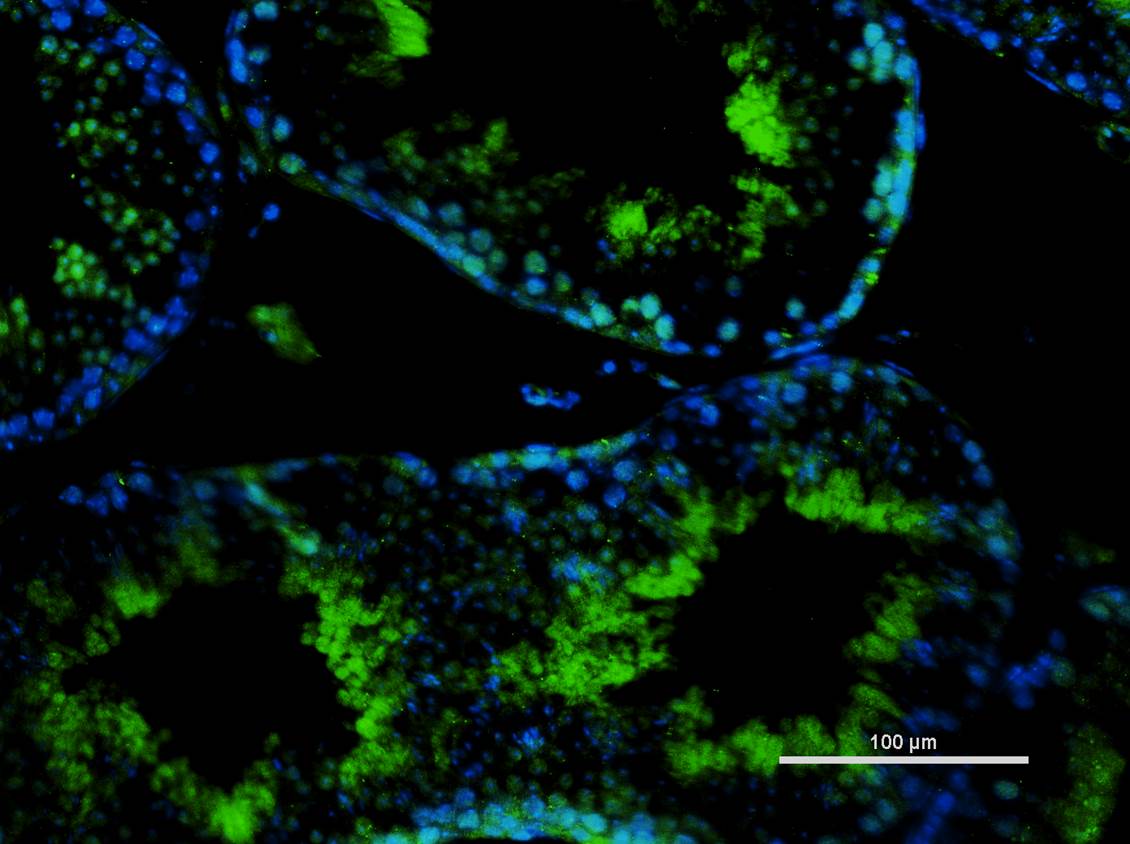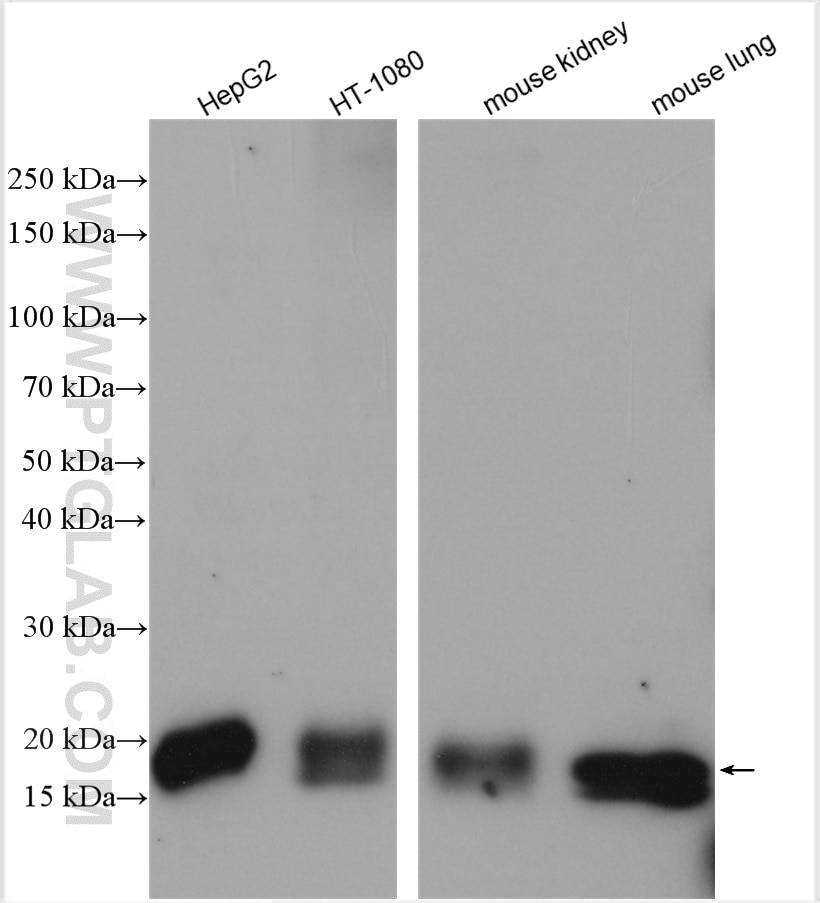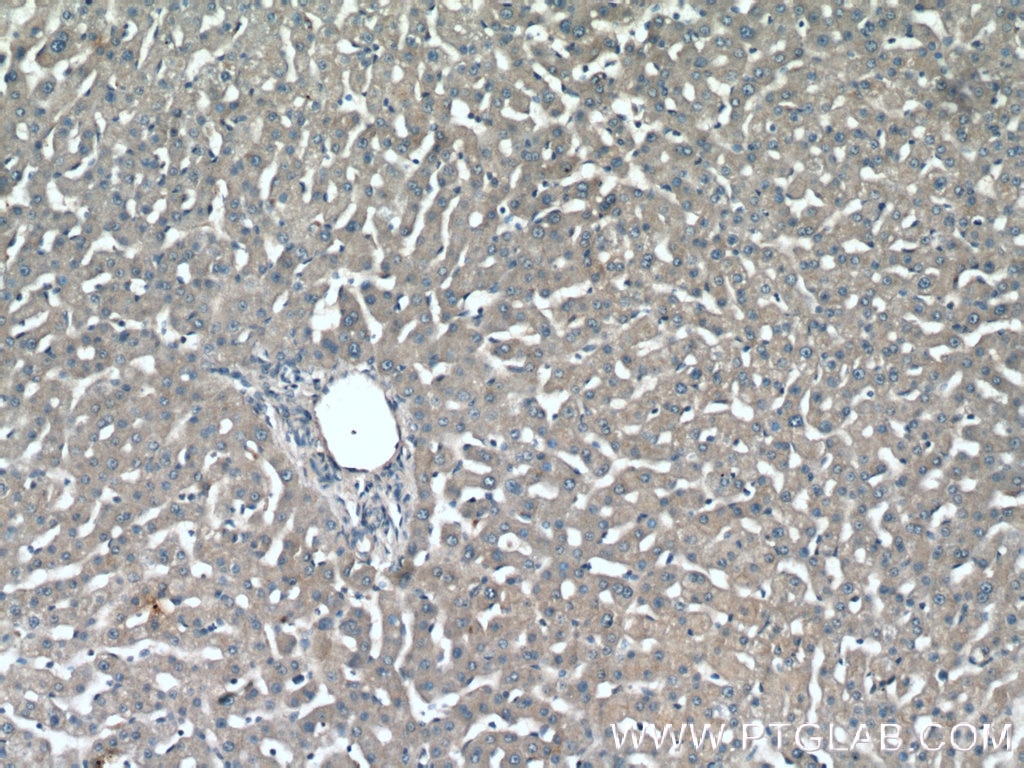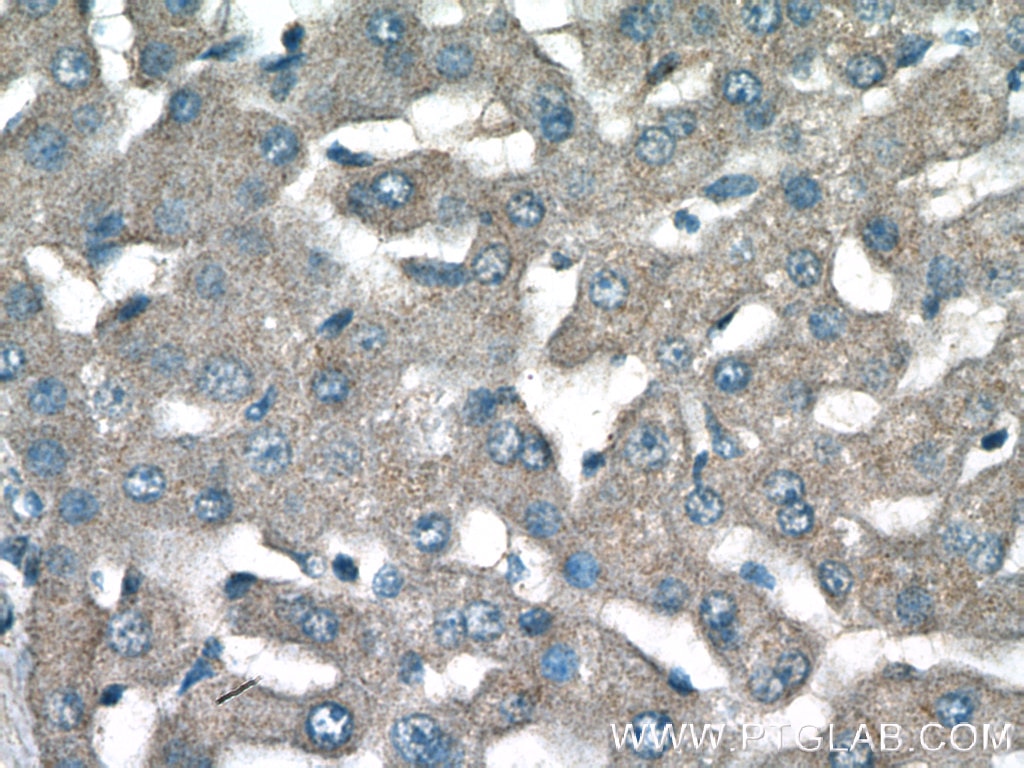Tested Applications
| Positive WB detected in | HepG2 cells, HT-1080 cells, mouse lung tissue, mouse kidney tissue |
| Positive IHC detected in | human liver tissue Note: suggested antigen retrieval with TE buffer pH 9.0; (*) Alternatively, antigen retrieval may be performed with citrate buffer pH 6.0 |
Recommended dilution
| Application | Dilution |
|---|---|
| Western Blot (WB) | WB : 1:1000-1:6000 |
| Immunohistochemistry (IHC) | IHC : 1:50-1:500 |
| It is recommended that this reagent should be titrated in each testing system to obtain optimal results. | |
| Sample-dependent, Check data in validation data gallery. | |
Published Applications
| KD/KO | See 1 publications below |
| WB | See 10 publications below |
| IF | See 1 publications below |
Product Information
19888-1-AP targets NPC2 in WB, IHC, IF, ELISA applications and shows reactivity with human, mouse samples.
| Tested Reactivity | human, mouse |
| Cited Reactivity | human, mouse |
| Host / Isotype | Rabbit / IgG |
| Class | Polyclonal |
| Type | Antibody |
| Immunogen |
CatNo: Ag13719 Product name: Recombinant human NPC2 protein Source: e coli.-derived, PGEX-4T Tag: GST Domain: 1-151 aa of BC002532 Sequence: MRFLAATFLLLALSTAAQAEPVQFKDCGSVDGVIKEVNVSPCPTQPCQLSKGQSYSVNVTFTSNIQSKSSKAVVHGILMGVPVPFPIPEPDGCKSGINCPIQKDKTYSYLNKLPVKSEYPSIKLVVEWQLQDDKNQSLFCWEIPVQIVSHL Predict reactive species |
| Full Name | Niemann-Pick disease, type C2 |
| Calculated Molecular Weight | 151 aa, 17 kDa |
| Observed Molecular Weight | 17-21 kDa |
| GenBank Accession Number | BC002532 |
| Gene Symbol | NPC2 |
| Gene ID (NCBI) | 10577 |
| RRID | AB_10639363 |
| Conjugate | Unconjugated |
| Form | Liquid |
| Purification Method | Antigen affinity purification |
| UNIPROT ID | P61916 |
| Storage Buffer | PBS with 0.02% sodium azide and 50% glycerol, pH 7.3. |
| Storage Conditions | Store at -20°C. Stable for one year after shipment. Aliquoting is unnecessary for -20oC storage. 20ul sizes contain 0.1% BSA. |
Background Information
Niemann-Pick Type C (NPC) disease is a lysosomal storage disorder characterized by accumulation of unesterified cholesterol and other lipids in the endolysosomal system. NPC disease results from a defect in either of two distinct cholesterol-binding proteins: a transmembrane protein, NPC1, and a small soluble protein, NPC2. NPC1 or NPC2 deficiency models showed that the function of these two proteins within lysosomes are linked closely. NPC2 is also named human epididymis-specific protein 1 (HE1), defects of which are the cause of Niemann-Pick disease type C2, characterized as a lysosomal storage disorder that affects the viscera and the central nervous system. Recent finding suggests that NPC2 may serve as a novel intracrine/autocrine factor that controls adipocyte differentiation and function as well as potential therapeutic target for the treatment of type 2 diabetes and related metabolic disorders.
Protocols
| Product Specific Protocols | |
|---|---|
| IHC protocol for NPC2 antibody 19888-1-AP | Download protocol |
| WB protocol for NPC2 antibody 19888-1-AP | Download protocol |
| Standard Protocols | |
|---|---|
| Click here to view our Standard Protocols |
Publications
| Species | Application | Title |
|---|---|---|
Nature A CRISPR screen defines a signal peptide processing pathway required by flaviviruses. | ||
Nat Commun A genome-wide CRISPR screen identifies host factors that regulate SARS-CoV-2 entry. | ||
Dev Cell NPC1-mTORC1 Signaling Couples Cholesterol Sensing to Organelle Homeostasis and Is a Targetable Pathway in Niemann-Pick Type C. | ||
Funct Integr Genomics ALKBH5-mediated NPC2 mRNA m6A demethylation promotes resistance to oxaliplatin in colorectal cancer | ||
Mol Cell Proteomics Multi Cell Line Analysis of Lysosomal Proteomes Reveals Unique Features and Novel Lysosomal Proteins | ||
Nat Commun Cholesterol sulfate alleviates ulcerative colitis by promoting cholesterol biosynthesis in colonic epithelial cells |
Reviews
The reviews below have been submitted by verified Proteintech customers who received an incentive for providing their feedback.
FH Kristian (Verified Customer) (07-06-2021) | Paraffin embedded testis were stained for Npc2 (green) and DAPI (blue)
 |








